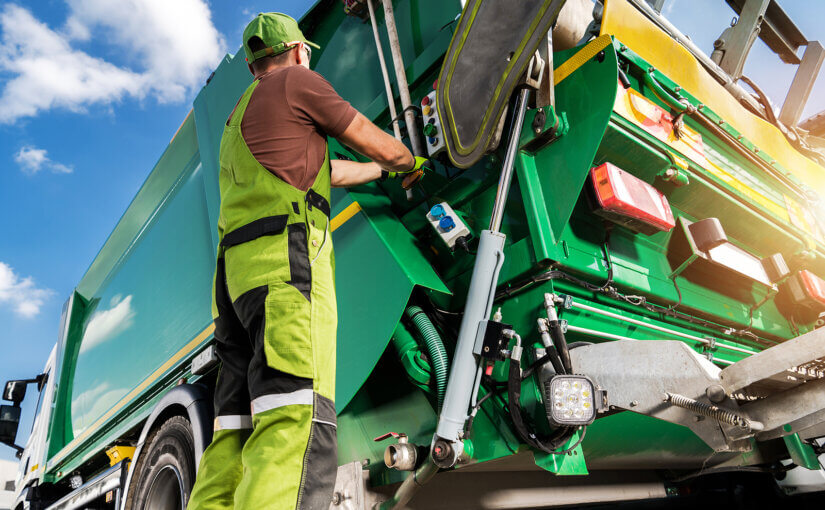When it comes to waste management, many places can use exclusive language and specific jargon, which can get confusing — especially if you don’t usually deal with skip hire or waste management.
Thankfully, we have explored the coined terms for waste management products and services and their definitions to help you understand waste-specific jargon.
Regarding skip hire and waste management, there are multiple types of waste, skip hire services, and different terms used to clarify waste and skip hire types.
Waste management
General waste – This is waste you can’t recycle, which should be collected separately from recyclable waste.
Builder’s waste – This is waste created because of construction. This waste includes electrical wiring, nails, plasterboard, and old insulation.
Commercial waste – Waste produced from business operations such as office refurbishment or demolition works.
Hazardous waste – This is waste that threatens the health of the general public or the surrounding environment. This type of waste should be disposed of safely and responsibly, adhering to legal regulations, or you could end up with a fine.
Ferrous – This is waste that contains iron materials.
Non-ferrous – Another term for metal waste that doesn’t contain any iron.
Non-hazardous waste – This is waste that poses no threat to the general public or the surrounding area due to its lack of or non-existent corrosivity, reactivity, or toxicity levels.
Cubic yard – Refers to the amount of waste a skip can hold. Various skip sizes are available, including a 4-6 cubic yard skip is ideal for smaller waste. In contrast, a 16 cubic yard skip is more appropriate for larger clearances or construction jobs.
Skip types
As well as different waste types, various places will use terms for different skip hires, each carrying a different purpose.
Enclosed skips – A skip that comes with a lid or locking mechanism. Generally, this kind of skip is used to dispose of large amounts and hazardous waste like asbestos.
Maxi skips – Used for commercial purposes, these can hold large amounts of wood, plastic, or metal waste, holding the equivalent of 100-120 bin bags.
Midi skips – This is the second smallest skip available to hire, generally being six cubic yards. It is commonly used for domestic waste but can be used for small-scale commercial projects, and this can hold the equivalent of 50-60 bin bags.
Mini skips – As the name shows, this is the smallest skip you can hire. The perfect option for light domestic waste measuring at four cubic yards, they can hold the equivalent of 22 bin bags or four wheelie bins.
RORO – This type of skip is also known as a roll on roll off skip. These are needed for large volumes of waste. This is the largest skip you can hire and cannot be placed on driveways or roads. Its low sides make it easily recognizable.
Other useful terms associated with waste management and skip hire
Skip hire permit – This grants permission to have a skip situated on public land. Skip-hire companies will be responsible for getting skip licenses, but in some areas, you must do this yourself. For more information, visit the gov.uk website.
Tipping skips – Working on a mechanical hinge, this skip is lifted by a forklift truck and released and tipped forward to ease the emptying of its contents. These skips can take all types of waste, including inert and non-inert waste.
Grab hire – Generally employed by commercial clients, a grab lorry is capable of moving large amounts of waste from one place to another, minimizing manual labour.
Wait and load – A skip that will be delivered to your premises and remain there for a short period of time (even as little as half an hour). Once you’re done, the skip will be taken away, and the contents disposed of. You do not need a permit for a wait-and-load service.
Public highway – May also be referred to as public land. This is a piece of land that is shared by the general public. A skip cannot be placed on a public right of way or land you do not own. If you have no other option, ensure you get permission from the land owner (generally the local council) before placing a skip there.
Waste transfer station – A site at which waste is delivered to. It can be sorted and segregated into waste streams before being moved to the appropriate site or area, improving recycling rates.
WEEE waste – This is an abbreviated form of ‘waste electrical and electronic equipment’, which refers to the collection of hazardous electrical equipment, including televisions, phones, computers, and fax machines. This type of waste cannot be disposed of in the same way as general waste.
Hopefully, this glossary of terms will help clarify some terms you may be unsure of when looking into hiring a skip and disposing of your project waste. If you need to hire a skip, this glossary should make things easier.
